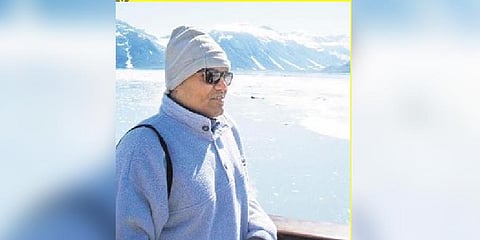

HYDERABAD: Two-and-a-half decades ago, Kamal Shah, a young graduate in his early 20s, was preparing to fly abroad to pursue his master’s degree in chemical engineering. Just before he could leave the country, a mild fever struck, which he didn’t take seriously until his condition worsened and he was diagnosed with a life-threatening illness — Atypical Hemolytic Uremic Syndrome (AHUS).
The only way to survive this was to undergo a kidney transplant. The devastated young man, juggling his career and critical medical condition, decided to fight against the situation and undergo a kidney transplant. Months later, he underwent a live-donor transplant, which unfortunately proved redundant and unsuccessful.
Asked what his immediate thoughts were when he came to know of his condition, Kamal tells CE, “The first thought was what about my Master’s in the US — will this condition resolve in a few weeks so I can go to the US and continue my education? What could this condition mean? How long would it last?”
"I was despondent initially but began to grow stronger, mentally. I looked at this always as a temporary break. I made sure I learned all I could about the disease so I could always take an informed decision about my health. I did everything I could to be an active participant in decisions being taken about my health. While there were times when I would think and worry about the way my life was unfolding, especially when my kidney transplant failed, I lost hope. But later, I got my act together and switched to peritoneal dialysis (PD). I also incorporated meditation and journaling into my daily routine. Both these help me tremendously with my mental health."
Sharing how PD changed his life, Kamal says, “My entire day would revolve around dialysis — I would take a nap after the session as I was exhausted. Soon, I settled down and learned to live with it.”
A diseased life comes with its challenges. Similarly, he began to adjust to his treatment-supported life. He started writing a blog to express his feelings about how life changes with an unexpected diagnosis of a chronic life-changing disease, how he keeps up with his diseased life by pulling thoughts of hope and motivation to pull through the day, and how dialysis offered him a second chance to live. Ten years later, he was finally able to marry his calling and passion.
“My blog slowly become popular among dialysis circles in India. Vikram Vuppala, who was looking to start something in healthcare stumbled upon my blog and was intrigued by what he read. He shot me an email asking if we could meet. We met for breakfast the next day and started discussing the problems in the Indian dialysis ecosystem. Soon after, the idea for NephroPlus — a patient-centric dialysis centre network was born,” he reveals.
Recently, the company launched their own Dialyser Reprocessing Machine called Renova which is going to bring a much safer and more convenient machine into Dialysis Centers.
“We are also exploring superior technologies and such devices that will not only improve the quality of dialysis care but also reduce costs for patients,” he adds.
The main motivational force for Kamal has been a desire for a normal life. Sharing what his average day looks like, he says, “I wake up pretty early, about 4.45 am. After disconnecting from my dialysis machine, which I hook up to at night before I sleep — so that none of my waking hours is wasted on dialysis. I freshen up and have a hot cup of Darjeeling black tea. This is followed by meditation, journaling and then reviewing the day ahead. I then shower and spend some time in the puja room of our home. I then do strength training with a physiotherapist followed by swimming (or walking, during winters). After breakfast, I head to the office where I spend the whole day, to return by around 6 pm. I do another round of meditation, followed by spending some time chatting with my parents. Dinner is at around 7.45 pm with them. I then hook up to the machine at around 9 pm. I make sure I read for some time before sleeping.”